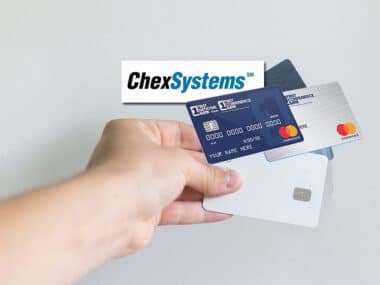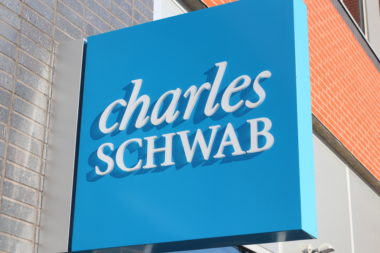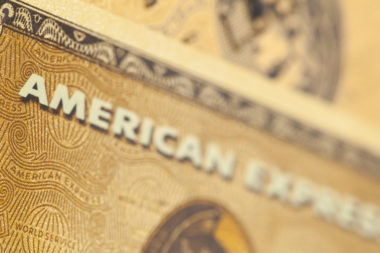When a merchant chooses to accept checks as a form of payment, they’re taking a big risk. Other forms of payment — such as cash, debit cards, or credit cards — will yield an instant return to any merchant who accepts them.
However, accepting a check requires a certain level of trust. Any retailer who takes checks must be confident that that check is going to deliver on a customer’s promise to pay once it is taken to the bank.
Unfortunately, no retailer can judge whether a check is valid just by looking at it. In order to continue offering the convenience of pay-by-check to their customers (while avoiding fraud), retailers will oftentimes use a checking verification system like Certegy or TeleCheck.
These companies use a wide range of data and statistical analysis techniques to send an instant judgment on a check back to a retailer. Retailers then take this information and decide to either accept or reject the customer’s check.
Table of Contents
Who Is Certegy?
Certegy is a company that gathers consumer information, analyses it, and then uses that information to advise retailers on whether to accept a check from a consumer.
They have been around for 45 years, and, similar to the way credit reporting companies get their information, Certegy monitors your history with checking. Certegy will then use that information along with proprietary algorithms to try to make an accurate guess as to whether a given check is valid.
Although Certegy serves an important purpose for retailers and other businesses that accept checks, consumers are sometimes rightly wary of Certegy’s practices.
How Does Certegy Work?
Just like how credit reporting bureaus use your credit history to produce a risk assessment about you for lenders, Certegy uses your checking history to judge whether the check you just wrote is likely to go through. Although we know roughly how credit scores are calculated, Certegy keeps its formulas for checking risk assessment a secret.
From Certegy’s point of view, this veil of secrecy is necessary to prevent ill-willed shoppers from tricking the system and getting away with fraudulent checks. However, consumers may be frustrated by Certegy’s opaque system, when their checks are declined for no apparent reason.
We do know about some of the things that Certegy does (and does not) base judgments on. Certegy uses your past check-writing history and, if possible, the number of funds currently in your checking account.
However, not all banks will make this information available to companies like Certegy. Certegy denies that your credit score plays a role in determining whether your check should be accepted.
In addition, it’s important to remember that Certegy does not share this information in its raw form with retailers. Instead, retailers are simply given Certegy’s final judgment, without direct insight into the information or formulas used to reach that judgment.
Who Uses Certegy Check Services?
According to the Certegy website, there are thousands of organizations — both small and large — that take advantage of Certegy check services. You can check the check-cashing locator tool on the Certegy site to gain insight into the different organizations that use Certegy check services.
Note that not all organizations that utilize Certegy’s services wish to provide this information, so the list does not reflect the total number of users.
Why Would Certegy Deny a Check?
Many consumers have experienced frustration with Certegy after having their checks denied based on Certegy’s judgment.
Certegy’s exact methods are kept a secret, so consumers may feel left in the dark with little understanding as to why their checks are being denied — let alone what they can do to have their checks greenlighted in the future.
Certegy is not allowed to deny checks on behalf of the organization, instead, they provide three decline recommendations for business owners on their site::
- “Negative Information on File: Typically this is due to the fact that another check drawn on the same routing and account number or associated with the identification of the consumer presenting the check has previously been returned and reported as such to Certegy;
- High-Risk Transaction: To offer check acceptance services to its customers, our merchants use information from us to help them make a decision. Certegy provides check acceptance recommendations based on analytical models using a variety of potential risk factors including, but not limited to location, check writing and cashing history, check number, amount, and fraud trends. Therefore, if a check presented for cash falls outside of the risk acceptance parameters (e.g., large dollar check presented to a merchant that is drawn on a bank account and payable to a consumer for which Certegy shows no previous check cashing history), a decline recommendation may be provided to the merchant;
- Validity and Edit Errors: These responses are not recommendations nor are they based on information from Certegy’s file. This type of response is provided when Certegy did not receive sufficient information to provide a payment recommendation to a merchant. For example, a validity error can occur if the information was missing at the time of the transaction or the format of the identification presented did not conform to established guidelines for a valid ID.”
As mentioned above, these codes are left intentionally vague. If your checks are failing to receive Certegy approval, below are some additional possibilities as to why:
- Insufficient funds: If you do not have enough money in your account to support the check that you’re writing, and your bank has made this information available to Certegy, then they will likely decline it;
- Poor checking record: If you have had multiple bounced checks in your past, Certegy is more likely to be suspicious of any checks you write in the future;
- Identity fraud: If someone has hijacked your identity and they’re writing bad checks in your name, this could be cause for denial. Certegy cannot determine that these checks are fraudulent, and in their eyes, you are the one who wrote them. If you’ve had a lot of checks declined recently and you aren’t sure why, it may be a good idea to find out if you’re a victim of identity theft.
Once you identify the reason why your check was denied, you can determine if the decision is disputable or if the denial is valid and it’s something that you need to take care of to avoid check denial going forward.
How to Contact Certegy Customer Service
If you suspect that you may be a victim of checking identity fraud or you’re just curious about why you were denied, it is possible to contact Certegy for a copy of their report on your checking history. Once you receive the report, you can use the declined check lookup for additional insight.
How to Get a Free Denied Check Report
Thanks to the Fair and Accurate Credit Transactions Act, consumers are entitled to a free copy of their report from any consumer reporting agency — this includes a report from Certegy — once every 12 months. Note that this report doesn’t affect your credit score.
You should be aware that in order to receive a copy of your Certegy report, you need to contact Certegy customer service. There are two ways to do this:
- Certegy check services phone number: 1-800-237-3826
- Request in writing: Send a request including your name, address, daytime phone number, bank routing and account numbers, a copy of your driver’s license, and your social security number to the following address:
Certegy Check Services, Inc.
Attn: CFDR Request
P.O. Box 30046
Tampa, FL 33630-3046
If you prefer to fax over the information, you can do this as well at 727-570-7936.
How to Dispute Certegy Records
If you request a copy of your Certegy report and you discover that there are inaccuracies, it’s important to dispute the errors. In order to dispute errors on your Certegy records, call the number or send a written dispute to the address above.
Be sure to point out exactly where the errors occurred and include copies of any documents that support your version of events. If you are wanting to dispute your check being declined as a result of the information reported by Certegy, you need to do so within 60 days of the denial. Certegy then has 30 days to respond.
If you can find something that is disputable, you may have the mark against you removed. If there is no issue on Certegy’s behalf, the mark will remain.
There have been issues in the past with Certegy not resolving consumer disputes, and in 2013, the Federal Trade Commission (FTC) sued Certegy. The result was a $3.5 million settlement. If Certegy fails to resolve your dispute, or you feel that they are not keeping accurate records, you may have grounds to sue.
Image Source: https://depositphotos.com/





